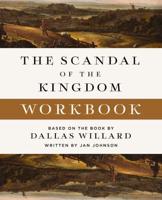Publisher's Synopsis
This volume contains five chapters which investigate the early Christian appropriations of Jewish apocalyptic material. An introductory chapter surveys ancient perceptions of the apocalyses as well as their function, authority, and survival in the early Church. The second chapter focuses on a specific tradition by exploring the status of the Enoch-literature, the use of the fallen-angel motif, and the identification of Enoch as an eschatological witness. Christian transmission of Jewish texts, a topic whose significance is more and more being recognized, is the subject of chapter three which analyzes what happend to 4,5 and 6 Ezra as they were copied and edited in Christian circles. Chapter four studies the early Christian appropriation and reinterpretation of Jewish apocalyptic chronologies, especially Daniel's vision of 70 weeks. The fifth and last chapter is devoted to the use and influence of Jewish
apocalyptic traditions among Christian sectarian groups in Asia Minor and particularly in Egypt. Taken together these chapters written by four authors, offer illuminating examples of how Jewish apocalyptic texts and traditions fared in early Christianity.
Editors
James C. VanderKam is lecturing at the University of Notre Dame;
William Adler is lecturer at North Carolina State University.
Series: Compendia Rerum Iudaicarum ad Novum Testamentum
Section 1 - The Jewish people in the first century Historial geography, political history, social, cultural and religious life and institutions Edited by S. Safrai and M. Stern in cooperation with D. Flusser and W.C. van Unnik
Section 2 - The Literature of the Jewish People in the Period of the Second Temple and the Talmud
Section 3 - Jewish Traditions in Early Christian Literature











